Natsume opens up about Harvest Moon's confusing past and hopeful future
Can Light of Hope reignite what made the series great to begin with?
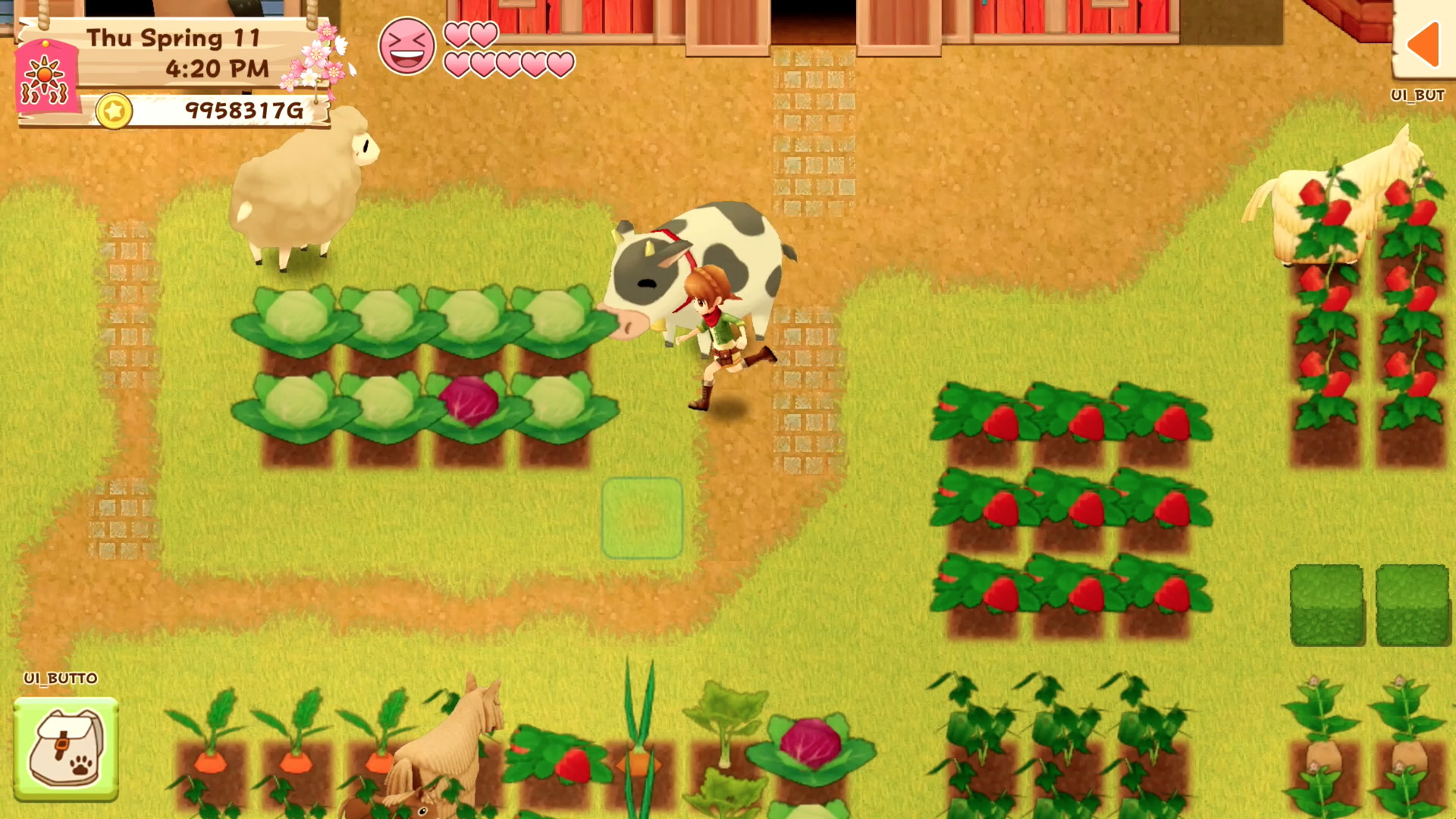
The first ever Harvest Moon on PC, titled Light of Hope, has released today. For Natsume, the publisher-turned-developer of the series, it's a big, scary step in more ways than one. Not only is this the first time a Harvest Moon is coming to PC, it also marks the 20-year anniversary of a series beloved for its charmingly quaint slice of rural farmsteading.
But as fans of the series know, not everything has been hunky-dory in the Harvest Moon world in recent years. Ahead of Harvest Moon: Light of Hope's launch, I spoke with Natsume president Hiro Maekawa, vice president of operations Graham Markay, and producer Taka Maekawa to explore the series' past, contentious present, and future.
"It's hard to believe 20 years has gone by," Markay says. "I can look back and remember putting our blood, sweat, and tears into each one. In the earlier days it was really an uphill battle. Not many people were interested in farming simulations for the SNES. Looking back now and seeing how the genre has grown, there's more competitors, which is fantastic, and there's a lot more fans too. It's something to be proud of."
Trouble in the valley
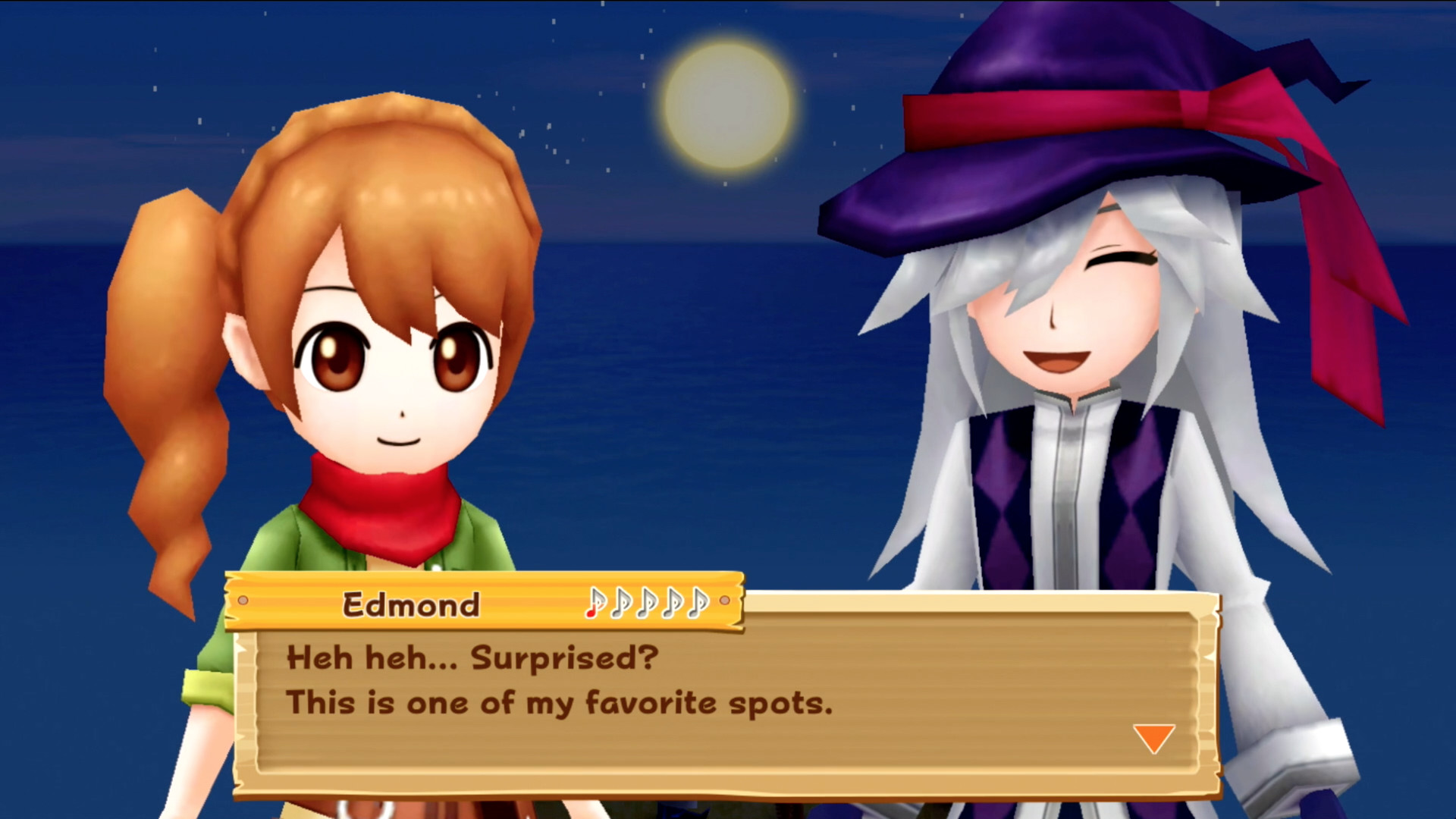
In terms of number of releases, Harvest Moon (called Bokujō Monogatari in Japan) is a series that rivals even the biggest like Final Fantasy. Since its first release on the SNES, Natsume has published over 30 Harvest Moon games (including several spin-offs) across well over a dozen platforms. It's a hugely popular series worldwide, but it all started with a risky gamble in 1996.
"Harvest Moon is something like my child," Hiro Maekawa says. "In 1996, the first time I came across [Harvest Moon], I had a chance to localize and publish it in America. At that time, I was a newcomer to the videogame industry. I decided to check with my business friends in the videogame industry to see what kind of comments they had about the game. To my surprise, everyone said to me, don't [publish] such a boring game. That will be a bad mistake. I was really surprised by those comments."
Maekawa explains that, in the '90s, videogames were largely violent and conflict-driven. Harvest Moon, with its relaxed pace where players plant crops, tend to virtual livestock, and court bachelorettes, was unlike anything else at the time. It was wholesome and cute—and everyone was betting against it.
Originally created by Yasuhiro Wada and his team at Victor Interactive Software (later acquired by Marvelous Inc.), Natsume agreed to publish and localize Bokujō Monogatari in the West under the name Harvest Moon. Maekawa says it was more than just a publishing arrangement, but a close partnership where Natsume advised and helped guide Wada's vision. "I said to myself, this game might have great potential in the future to grow," Maekawa says. "The reason why is that America is a huge farming country, and I felt very nostalgic about this game because I was born and raised in the countryside in Japan. My instinct was correct."
Keep up to date with the most important stories and the best deals, as picked by the PC Gamer team.
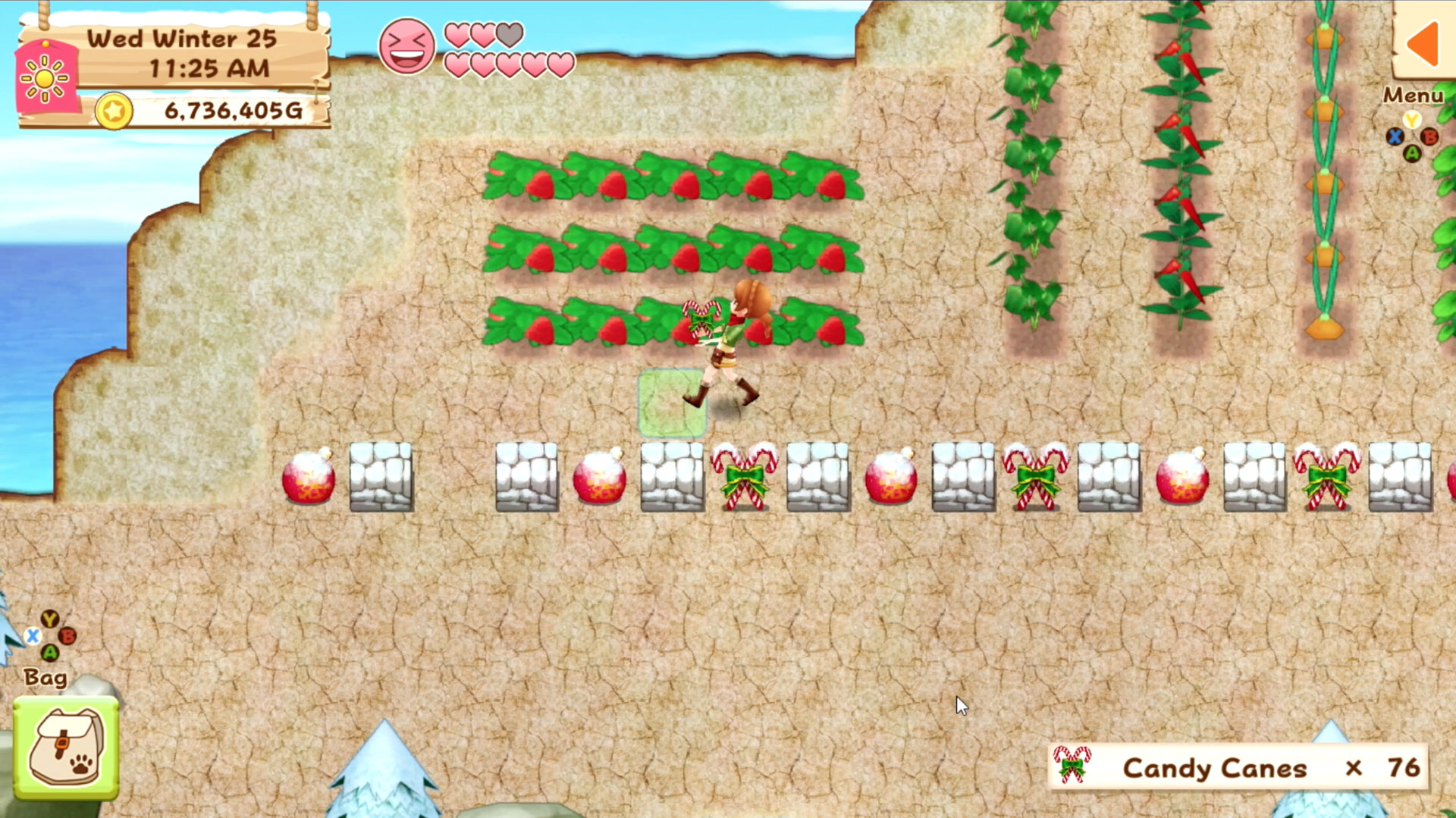
After 16 years of working together, Marvelous decided to rescind Natsume's publishing and localization rights for Bokujō Monogatari and instead publish it through their own subsidiary, XSeed. Natsume would only be able to keep the name Harvest Moon, but the original series would continue under the new name of Story of Seasons. It's a point in Bokujō Monogatari's history that continues to confuse even the most dedicated fans, with rumors circulating of disputes between the two companies that inspired a kind of rivalry. Hiro Maekawa says that isn't the case.
"We didn't like that idea, but it's understandable," Hiro Maekawa tells me. "If you have your own subsidiary in America, it makes sense for them to go by themselves. But for us, we spent a lot of time and energy to [popularize] this unknown farming simulation game for almost 16 years. We had a lot of loyal Harvest Moon fans in Europe and America, and I said to myself, we shouldn't—we cannot say to these loyal fans that there will be no more Harvest Moon games."
In 2014 Maekawa and his team started making their own games under the Harvest Moon name, starting with Harvest Moon: The Lost Valley. Unlike Story of Seasons (Bokujō Monogatari), which is largely faithful to the core formula of farming and socializing with villagers, The Lost Valley shook up Harvest Moon by introducing Minecraft-esque terraforming. Players could literally sculpt their farmland in three dimensions. For the first Natsume-developed Harvest Moon, it was received poorly with fans and critics. It's follow up, Skytree Village, fared slightly better.
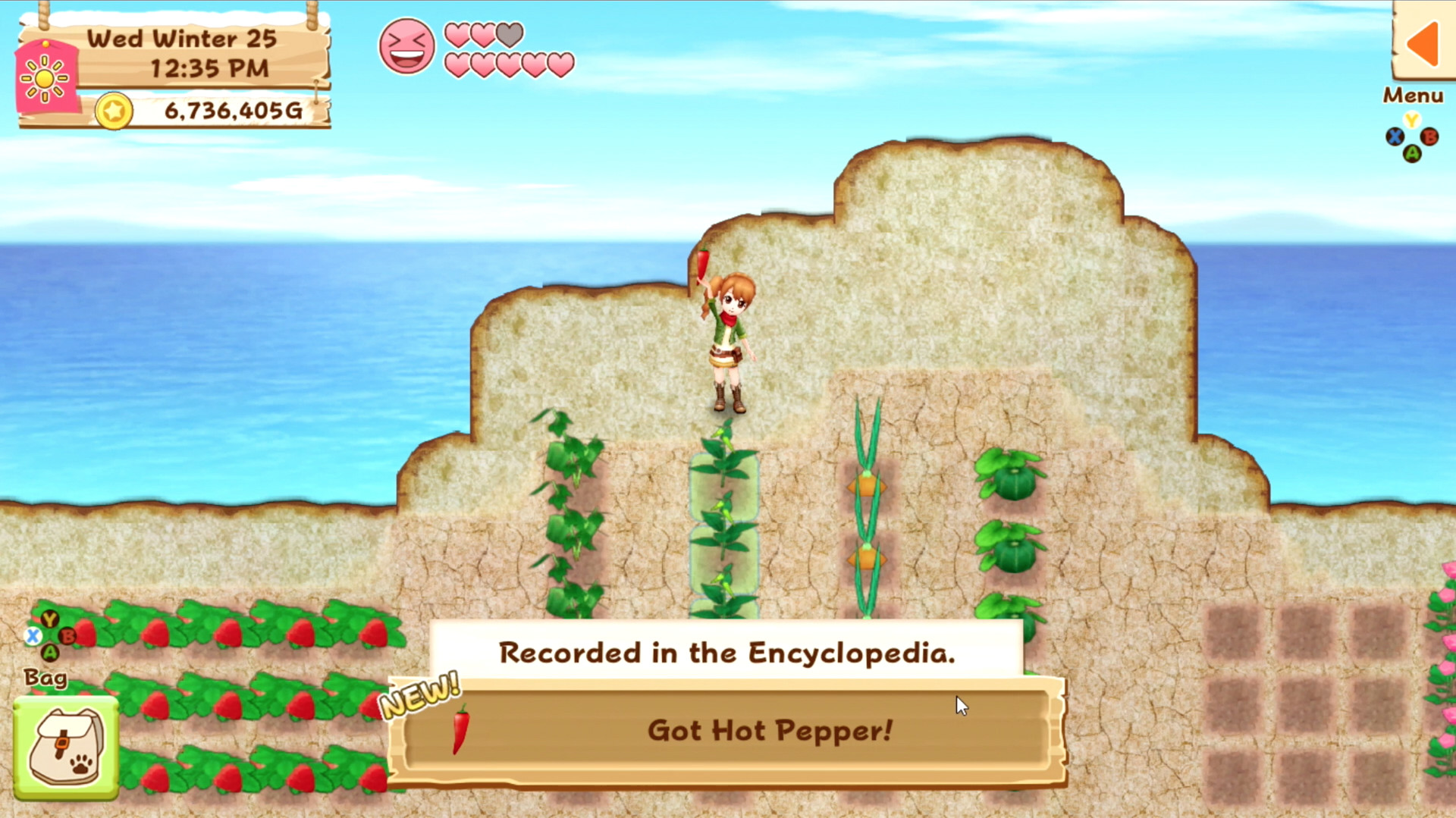
Everyone has a favorite Harvest Moon, so they want all Harvest Moons to be exactly the same
Many felt that Natsume's Harvest Moon had lost its soul. It's more cartoonish aesthetic and reworked farming simulation was too much of a departure from a series that was beloved for how faithfully it stuck to the same day-in-day-out farming of the original games. While the cast and characters might change with each one, you always could find comfort in the humdrum serenity of watering your field or bringing your beau freshly picked strawberries.
But for Markay, Hiro Maekawa and Taka Maekawa, they insist that Harvest Moon hasn't lost its soul at all. With 20 years of Harvest Moon behind them, every fan has their opinion on which one is best. It can be difficult to appease everyone. "Everyone has a favorite Harvest Moon, so they want all Harvest Moons to be exactly the same, but that wouldn't make other fans happy. It's not as negative as it used to be, maybe four and a half years ago, but in terms of sales we're quite happy with them."
Regardless of what Markay has to say, you don't have to dig very far to find that fans disagree with Natsume's attempts to evolve the series. But Natsume is hoping to change that with Light of Hope.
Back to basics
With the 20th anniversary of Harvest Moon this year, Markay says Natsume wanted to make a Harvest Moon that pays homage to the series' nostalgic past. Gone is the Minecraft influence, replaced by a renewed focus on farming and socializing. While there's still subtle innovations, like the improved rucksack that automatically selects the best tool instead of needing to constantly swap between them, "it feels like a Harvest Moon game," Markay says.
It's also the first time a Harvest Moon game has come to PC. Markay and Hiro Maekawa both tell me they see it as a great way to continue expanding the series to a whole new audience that, if the success of Stardew Valley is anything to go by, are hungry for more cutesy farming simulations. "We love the fact that Stardew Valley just reiterates that there's a want and a need in the PC market for a farming and life simulation game. Was it because of Stardew Valley that we went after PC? No. We'd been talking about a PC version for a while. It's great though, that there's validation that there's a market for it there," Markay says.
Similar to past Harvest Moons, the player arrives in a town to find it in dire straits. A recent monsoon has destroyed most of the buildings, and it's up to the player to restore the local farm and help repair the damage. As buildings are slowly restored, villagers will return to the village. It's a premise that echoes the last Harvest Moon that Marvelous Inc. developed, A New Beginning.
This isn't a strictly classic Harvest Moon, however. Characters from The Lost Valley and Skytree Village will make an appearance, and a villagers have special requests to help mix up the day to day routine. "And let's be real, a lot of people who love Harvest Moon love the whole social interaction element as well, and that's been looked at and we've added a lot more depth to it as well," Markay adds.
On paper, that sounds great, but again Natsume's attempts at making their own internally-developed Harvest Moon are haunted by negative impressions from players. Easily the largest of these early criticisms has to do with Light of Hope's art style. Producer Taka Maekawa tells me Light of Hope's "retro-plus" aesthetic was meant to be a middle ground between the 16-bit charms of older Harvest Moons and the 3D "triple-A" look of its newer console versions. But fans, myself included, find its flat, cartoonish style evokes the look of a mobile game instead of the nostalgic charms of Harvest Moon's past. Also worth mentioning is the abrasively upbeat music that has, so far, accompanied its trailers—a far cry from the rustic melodies of its older games.
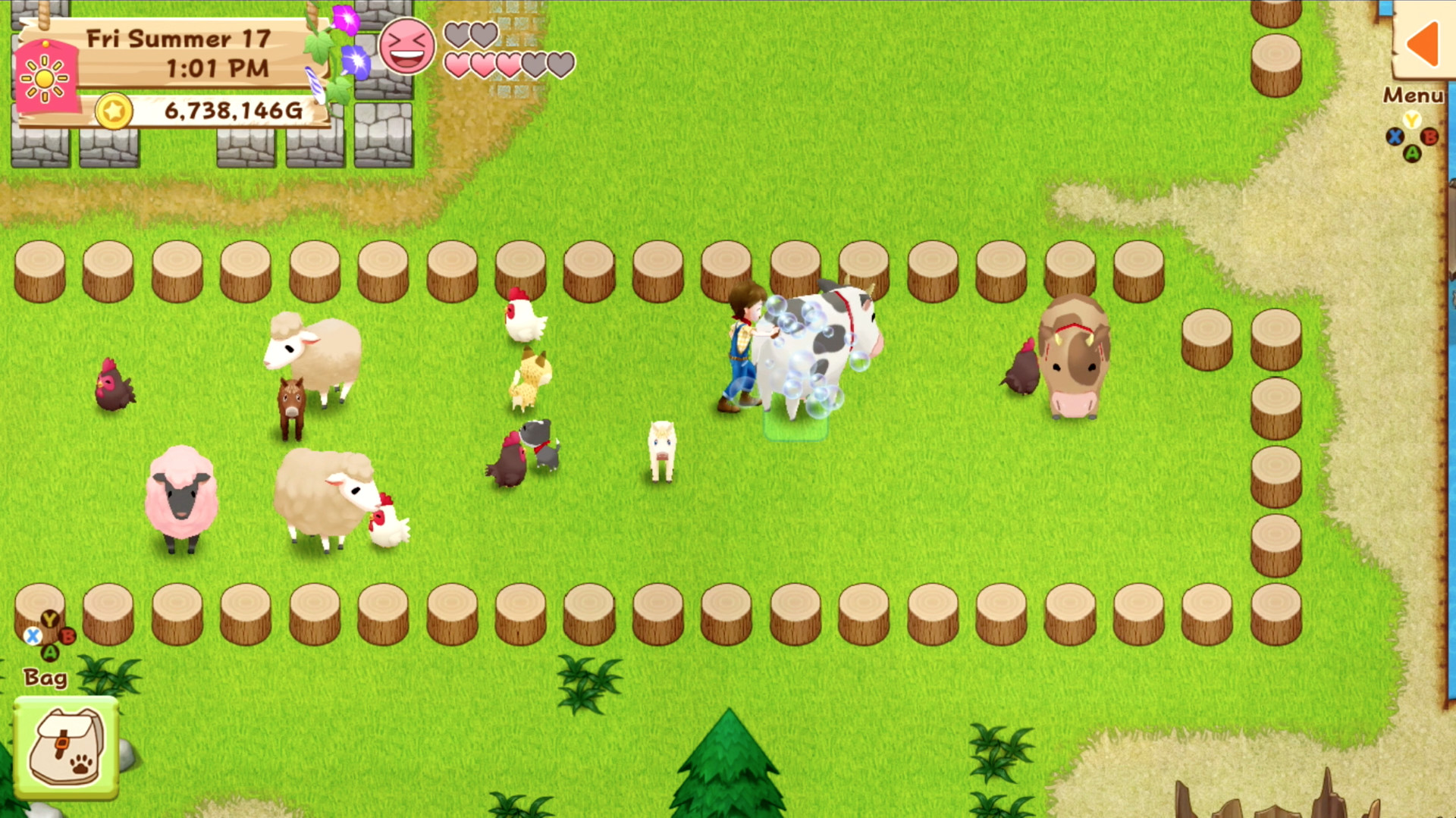
Harvest Moon has never been about graphics.
"To each their own," Markay responds when I ask about his feelings towards Light of Hope's early reception. "But for us, it's the feeling. Harvest Moon has never been about graphics. Fundamentally, it's never been about a function, feature, character, or artstyle. It's always been about that simplistic message that hard work gets rewarded."
That said, Markay is quick to add that fan feedback has always been a crucial part of their development. It's why features like The Lost Valley's terraforming are gone while others like the improved rucksack remain. We listen to everyone's feedback because that's the reason why the genre has grown. You take what's popular in the series, and you try and evolve it at the same time."
Hope for the future
It's a challenge I can sympathise with. While many will undoubtedly find that Stardew Valley does a better job of paying homage to Harvest Moon's past, I'm willing to give Light of Hope a chance—but I am skeptical.
Where I can agree with Markay and Maekawa is that the way the genre has grown is excellent. "We absolutely love it," Markay says. "We would prefer that there is strong competition as opposed to none. As Hiro mentioned before, when we first published Harvest Moon back in 1997, there was no genre. And now there's a big genre with a lot of competition, especially with indie games."
While the question of whether Natsume's Harvest Moon will finally appeal to long-time fans of the series remains unanswered (at least until we play Light of Hope), Maekawa is insistent that Natsume will continue to listen to feedback and evolve Harvest Moon. "It's now been 20 years, but we're thinking about the next 50 or 100. Stardew Valley expanded the PC market [for farming simulation games], and we believe we can expand it further with Harvest Moon: Light of Hope."
With over 7 years of experience with in-depth feature reporting, Steven's mission is to chronicle the fascinating ways that games intersect our lives. Whether it's colossal in-game wars in an MMO, or long-haul truckers who turn to games to protect them from the loneliness of the open road, Steven tries to unearth PC gaming's greatest untold stories. His love of PC gaming started extremely early. Without money to spend, he spent an entire day watching the progress bar on a 25mb download of the Heroes of Might and Magic 2 demo that he then played for at least a hundred hours. It was a good demo.


